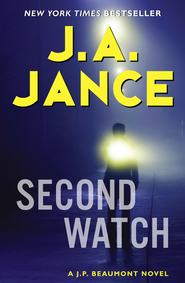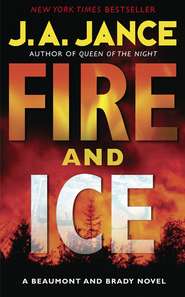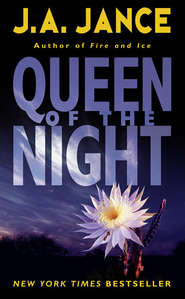По всем вопросам обращайтесь на: info@litportal.ru
(©) 2003-2024.
✖
Betrayal of Trust
Автор
Год написания книги
2019
Настройки чтения
Размер шрифта
Высота строк
Поля
“There are still a few things that aren’t fit to print—if you have enough pull, that is,” Ross said. “The version of the daughter’s death that went out to the media was that she died of an accidental overdose. The custody hearing was conducted behind closed doors, and those documents are sealed. From what I’ve been able to learn so far, Josh has been living in the governor’s mansion since before the custody arrangement was finalized. Sounds like he’s got ‘issues.’
“Governor Longmire and her husband are giving the kid a roof over his head—a very nice roof, by the way; food to eat; clothing to wear; a cell phone; a computer. In return, he’s been giving them fits by ditching school, getting into fights, and sneaking out at night. That’s how the phone ended up in Governor Longmire’s possession this morning. The governor’s security detail saw him letting himself out, using the old rope-ladder trick to climb down from the upper stories. He managed to give them the slip, but they called in a report. Governor Longmire confiscated the rope ladder and was waiting for Josh when he came back to the house early this morning. As punishment, she confiscated his iPhone. Once she turned it on and saw the film, she called me.”
With noon approaching, several groups of people had come into the restaurant. For a time the hostess managed to keep our booth separated from other diners. As the place filled, however, that was no longer possible. Two people in the latest group of four nodded in Ross’s direction. He was an official with a statewide office and a reputation to go with it. Naturally people recognized him.
He removed the phone from his pocket and handed it to Mel. “You might want to put that in your purse,” he told her. Then, to both of us, he said, “No more names, by the way—aliases only when in public. Little Jack Horner is at school today, with one of Old Mother Hubbard’s bodyguards along as an enforcer.”
“Why school?” Mel asked. “Isn’t it summer vacation?”
“Summer school,” Ross said. “Supposedly making up classes he flunked. She’d like to see you about two o’clock.”
“In her office?”
“At home,” Ross said. “You know how to find it?”
“My GPS knows how to find it,” Mel said confidently.
“What about the kid’s computer?” I asked. “That might have a lot more information than his phone.”
Ross nodded. “So I understand,” he said. “I told Old Mother that you’d pick it up when you stop by this afternoon. For starters, I’d like you to take it to Todd and let him make a copy of whatever’s there.”
Todd was Todd Hatcher. He is an electronics wunderkind who also has a Ph.D. in economics. He had come to Ross Connors’s attention when he did a study on the high cost of geriatric prison care. Todd’s interest in the subject had grown out of his own experience. His father, a convicted bank robber in Arizona, had been sentenced to life in prison. When the father began exhibiting symptoms of Alzheimer’s, he was paroled to the care of his wife, a waitress, who exhausted her life savings and her life trying to care for her ailing husband. Todd’s doctoral committee at the University of Washington had dismissed Todd’s study out of hand. When Ross Connors heard about it, not only had he stepped in to rescue Todd’s Ph.D. aspirations, he had also taken Todd on as an occasional consultant whose computer hacking skills went beyond his publicly recognized skills as a forensic economist.
But there was also a subtle warning here for Mel and me. There are some pretty savvy computer experts working for the Washington State Patrol Crime Lab. I couldn’t help but wonder why Connors was using a private consultant to examine Josh Deeson’s computer. Probably the same reason Mel and I were on the job.
“Search warrants?” Mel asked.
“Got ’em,” Ross said. He patted the pocket of his jacket and pulled out a packet of documents, which he handed over to Mel. “That covers Jack Horner’s computer, his iPhone, and his room. It’s Old Mother Hubbard’s house. She bought the computer with her credit card and she’s the one who pays for Little Jack Horner’s Internet connection. Legally, since she’s the one providing his room, she could voluntarily give us access to that and to his computer as well, but just in case the kid is actually involved in a homicide here, we’re better off with properly drawn warrants.”
“Works for me,” I said. “Warrants are always better than no warrants.”
“Does Grandfather Time know about any of this?” Mel asked, inventing a suitable alias for Gerard Willis on the spot.
“Not so far,” Ross replied. “There’s some concern that being given upsetting news right now might interfere with his recovery.”
Ross’s answer to that question went a long way to explain all the secrecy.
“And why us?” Mel asked. “Why Beau and me?”
“That’s easy. Old Mother Hubbard asked for Beau in particular,” Ross said, nodding in my direction. “She says the two of you go back a long way.”
Mel gave me a quizzical look.
“We were in high school together,” I said.
“Oh,” Mel responded cheerfully. “That certainly explains it.”
There are probably a lot of married men out there who instantly understood that when Mel said that, she meant the exact opposite—that what I had said explained nothing. We would need to have a much more detailed conversation on the subject, but the lack of privacy in the Red Lion coffee shop precluded my providing a detailed explanation of my connections to Governor Old Mother Hubbard.
“Exactly,” Ross said, missing the sarcasm entirely. “When she asked for J.P., I told her the two of you were a matched set—that you work well together.” He stopped long enough to glance at his watch, a doorknob-size Rolex. I could see the hands from across the table. It was half past noon.
“Are you hungry?” Ross asked. “Your appointment at her house is scheduled for two. If you’d like, there’s plenty of time to grab a sandwich before you go. It’s on me.”
That wasn’t entirely true. It wasn’t on him nearly as much as it was on his expense account, which meant the taxpayers were the ones paying the freight.
Mel pushed aside her coffee cup, stood up, and then collected her purse. “No, thank you,” she said. “After seeing what we saw on that phone, I seem to have lost my appetite.”
I stood up, too.
“Same goes for me,” I said. “We’ll give you a call when we find out more about this oddball collection of nursery rhymes.”
CHAPTER 3
MEL AND I DID NOT GO STRAIGHT OUT TO THE PARKING lot. Without exchanging a word but by mutual agreement we turned left, got on the elevator, and rode up to our room. It wasn’t until the door clicked closed that she asked the question I knew was coming.
“How come I had no idea you knew Governor Longmire?” she asked.
“I didn’t,” I said. “And I still don’t.”
“But Ross just said …”
“I knew her in high school, Mel,” I said. “High school! Do you have any idea how long ago that is? Back then she was Marsha Gray. She was one of the cool kids. I was not. In fact, back in those days, she didn’t see fit to give me the time of day. And believe me, other than seeing the woman on the news occasionally, I haven’t seen her since, either.”
“So you didn’t like date or anything?” Mel asked.
“No,” I said gruffly. “Not at all!”
Some people recall their high school experiences through an idyllic haze that makes them seem like heaven itself. Not me. Grade school and high school were hell. My mother certainly wasn’t the only single mother in the world back then. In the aftermath of World War II, there were plenty of war widows raising kids alone. The problem was, my mother wasn’t a widow since she and my father never married in the first place. He was a sailor stationed at Bremerton. They had just gotten engaged when he died in a motorcycle accident on his way back to the base. My mother was pregnant. Her parents were horrified. Her father kicked her out and wouldn’t have anything to do with us.
I never knew my father’s real name. My mother told me that my last name came from my father’s hometown, Beaumont, Texas. I have no idea if she ever made any attempt to contact my father’s people. Maybe she did, and maybe given the time and the circumstances, they didn’t want to have anything to do with us, either.
I had told Mel that story, and she had asked me why, after my mother’s death, I had made no effort to contact them on my own. Mutual disinterest, I suppose. Besides, I couldn’t shake the feeling that any attempt on my part to contact them would have been disloyal to my mother’s memory. She had fed us and sheltered us with money she earned working as a seamstress. But her sewing was also part of what made my childhood and adolescence difficult. She made most of my shirts, and that embarrassed the hell out of me. I wanted to look like the other kids—the cool kids—the ones with shirts from JCPenney’s or Sears or even Frederick & Nelson.
Whenever I think about my mother, I can’t help but be ashamed by how I felt back then. And that’s the other reason I’ve never gone looking for my father’s relatives. My father wasn’t there for me. My father’s family wasn’t there for me, either. My mother was. I figure I owe her that much loyalty and respect.
I didn’t give Mel the benefit of any of that background information, at least not right then.
I said, “When we were in high school, as far as Marsha and her pals were concerned, I was a joke—a laughingstock.”
“So why did she ask for you now?”
“No idea,” I said. “None. In fact, if you get a chance, why don’t you ask her?”
While we spoke, Mel had booted up her computer. She sent a copy of the video clip to her iPhone and a second copy of the file to her laptop.
“Ready to watch it again?” she asked.
“Yes,” I said. “We’d better.”









